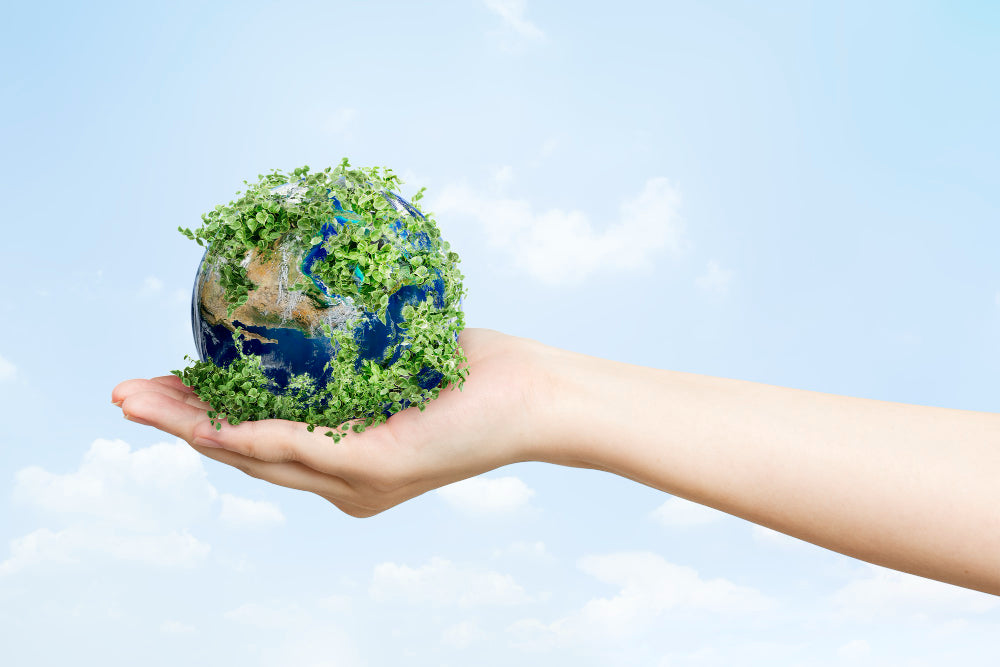Improve the planet while improving your health
Simpliigood for the conscious consumer – it can be challenging to find products that not only promote sustainability for the planet but actually offer the nutrition needed to sustain an energetic, adventure-filled lifestyle.
A more sustainable, health oriented lifestyle
You’re not alone in wanting a more sustainable wellness-oriented lifestyle. Healthy living has begun to blend with a craving for a more environmental-friendly lifestyle, and according to a 2016 survey, 62.4 percent of consumers said that they preferred to work out in a gym that uses environmental friendly equipment. What about your nutrition needs? Where does a sustainable lifestyle come in?
Sustainable protein
Options like organic produce and grass-fed beef have exploded in popularity. But for an even more ecologically sound option, fresh spirulina can push your health and sustainability to the next level. That’s why simpliigood has its name: sustainable protein. As far back as 1974, the united nations named spirulina one of the best foods for the future, and in 2008, a un food and agriculture organization report proclaimed that there is a need for both national governments and intergovernmental organizations to re-evaluate the potential of spirulina to fulfill both their own food security needs as well as a tool for their overseas development emergency response efforts.
The most nutrient-densed micro-algae available
Simpliigood is a fresh, all natural spirulina that’s the most nutrient-densed microalgae available, packed with all nine essential amino acids, plus antioxidants, vitamins—including a full range of b vitamins—and minerals. It is very low on fat and carbohydrates and holds mainly protein.
Save valuable land
Spirulina is one of the only foods outside of animal-based products providing amino acids like leucine, and has 670 percent more protein than soy-based tofu. Unlike soy crops, which demand space and water that are causing issues like deforestation in latin america, our spirulina is harvested sustainably: mindfully grown, harvested, and shipped to get the best and healthiest product to our consumers.
Conserving our water
Spirulina production uses less water than any other grow-crop vegetable—to produce a kilogram of spirulina, less than 500 liters of water is used. A comparable kilogram of rice uses 3400 liters, and beef uses a whopping 15,400 liters per kilogram. Even the pesticide-free water used to grow spirulina isn’t wasted: the small percentage of water changed out of ponds where simpliigood is harvested, is recycled for agriculture around our production facility. Not only does it conserve water but has yields significant increases in crop yield because of the highly nutritious content of the water we’re recycling, and no pesticide or herbicide runoff in the process.
Use the entire plant
The entirety of the harvested spirulina is used, unlike other fruit and vegetable crops where root, stem, and leaf systems are all by-products. A recent report showed that even at harvest, almost 40 percent of vegetables are tossed for being ‘ugly’, a problem that a micro-algae will never have, and the entirety of the plant is used: simpliigood offers almost five grams of protein per 27-calorie serving, plus a 95 percent absorption rate so that no nutrients and amino acids are left undigested and processed. Compare that to using dried and powdered forms: laboratory tests have shown that vitamins, antioxidants and essential fatty acids are destroyed at a 30 to 90 percent rate during processing and drying. Because simpliigood’s frozen and fresh delivery system allows preservation of virtually all of the nutrients present during harvesting, nothing is being wasted in the process.

